This section is for paid subscribers only. Our subscription is only $3700/- for one full year.
You get unlimited access to all paid section and features on the website with this subscription.
Subscribe to read full article
This section is for paid subscribers only. Our subscription is only $37/- for one full year.
You get unlimited access to all paid section and features on the website with this subscription.
Not ready for a full subscription?
You can access this article for $2, and have it saved to your account for one year.
- Release Date1958
- GenrePuranic
- FormatB-W
- LanguageHindi
- Censor RatingU
In the scheme of Nature woman’s paramount function is motherhood. For a while, she twinkles as wife probably only to be a mother for the rest of her life. How rationally and dispassionately she performs this function is the story of evolution and advancement of mankind.
Gandhari, the Royal Queen was the mother of hundred sons, Kauravas Brought up in traditional and conventional style she was taught to be a faithful and devoted wife to her blind husband, king Dhritarashtra. Because her husband was born blind she imposed blindness upon herself by tying down her eyes, forgetting that as the mother of hundred sons, she needed vigilance for their upbringing, Kunti, a widowed mother of five sons, Pandavas, lived vigilantly to grow her sons as great men.
Pandavas and Kauravas together were educating at Drona’s Ashrama. Whereas Pandavas showed admirable progress, Kauravas, neglected and pampered as royal princes, envied and even hated the Pandavas alleging partiality to guru Drona. On completion of education, Kauravas paid handsome Guru Dakshina to Drona whereas the Pandavas paid it with their tears, followed by brave deeds avenging an earlier insult of King Drupada to Drona.
Narada Muni, the Omnipresent Schemer sensing Kauravas and Gandhari’s ill-founded envy and hatred towards Pandavas decided to reveal their pettiness by telling them to perform “GAAJGOURI” Vrata which would also resultantly ensure blessings on the progeny. The Vrata necessitated the procession of Gandhari riding a huge clay elephant made with Hasta Nakshatra rainwater, pulled by her hundred sons. When the procession reached Kunti’s house Gandhari gave sacred presents to Kunti, prevailing upon her to perform similar Vrata failing which her five sons and their progeny may suffer Divine curses. Grieved at the poor prospects of her five Sons being able to prepare such a huge clay elephant within the limited time, she fainted. Temperamentally sensitive Bhima, in spite of his tender age, decided to dismantle hills on the banks of Jumna to prepare mud for the clay elephant. With his pre-existing capacity to double up his strength and shape by touching the ground with his back, he did so and threw huge mud balls on Hastinapura like present-day bombs crashing the city into splinters. Narada caught in one of the mud balls traveling in the sky, landed in Kunti’s house frantically requesting her and Arjuna to stop Bhima from throwing the mud balls.
Arjuna, impressed upon Bhima the futility of rashness and need of a sober effort to fulfill Kunti’s Vrata, preferably by requesting Indra, the King of Gods to lend his charming elephant Airavata. They addressed a request in writing and shot it tied to an arrow to Heavens. Indra replied back consenting, inviting Bhima to take the Airavat to Earth himself.
How to reach Bhima to Heaven was a problem and more than that how to persuade the mother to give her permission and blessings. Arjuna suggested preparing a ladder of arrows to Heaven for Bhima to climb, which he did with his skill in Archery. Bhima took blessings of Kunti and climbed the ladder reaching Heaven.
Indra wanted to test the strength of this tiny human being, Bheema. He had the Airavata drunk heavily and charged him on Bheema. Bheema fought tooth and nail with Airavata, conquered him, and brought him on earth to fulfill Kunti’s Vrata, in spite of the ladder being burnt by Duryodhana. Pandavas took their mother in procession on the real Airavata and not the clay elephant, returned the presents to Gandhari, and secured heavenly blessings on them and their progeny.
Gandhari repented for her envy of Kunti and Pandavas and owned that strong and resourceful mothers grow their sons into strong and great men.
[from the official press booklet]
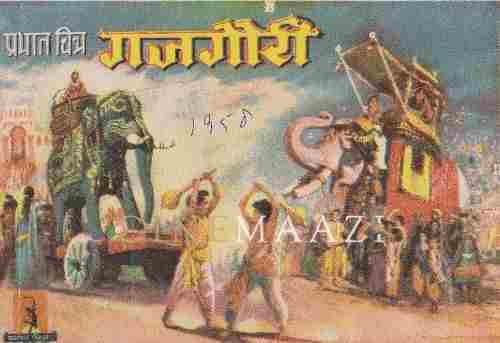
Cast
-
Sulochana
Kunti -
Ratnamala
Gandhari -
Shahu Modak
Indra -
Vishwas Kunte
Bhishma -
Tara Dixit
Kripi -
Kelkar
Dhritharashtra -
Gramopadhyay
Vidur -
Hemraj
Drupad -
Vijay Limaye
Arjuna -
Vijay Duggal
Bhima -
Narendra Bhandari
Duryodhan -
Vijay Dixit
Dushassan -
Anant Kumar
Narada -
Nana Palsikar
Drona -
Kishore Paranjape
Dharma
Crew
-
BannerPrabhat Chitra, Bombay
-
Director
-
Music Director
-
Lyricist
-
Story Writer
-
Dialogues
-
Cinematography
-
Sound Recording/ Audiography
-
Choreography
-
Make-up
-
Art Direction





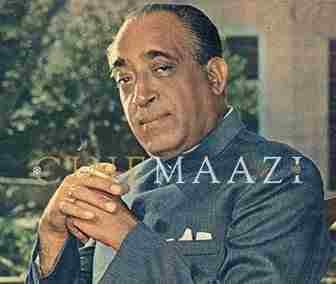
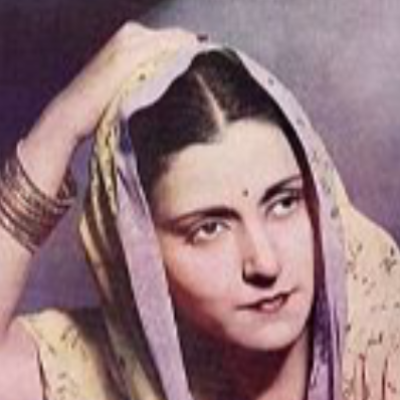
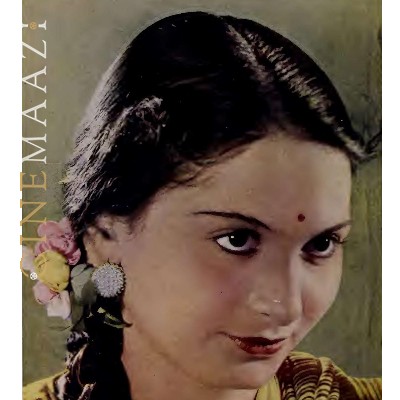
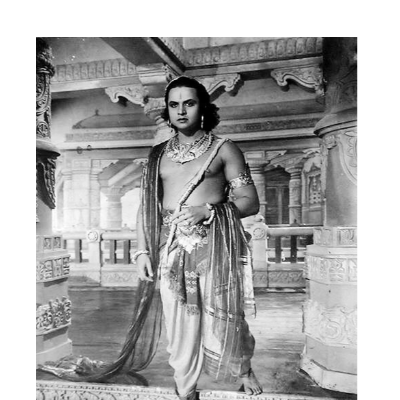

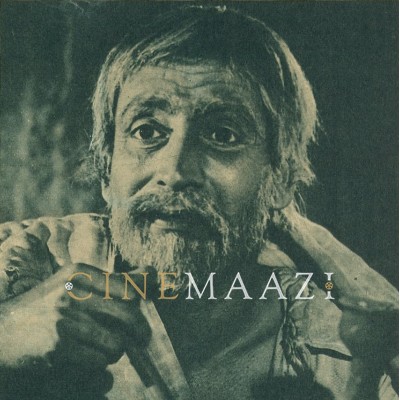

.jpg)



